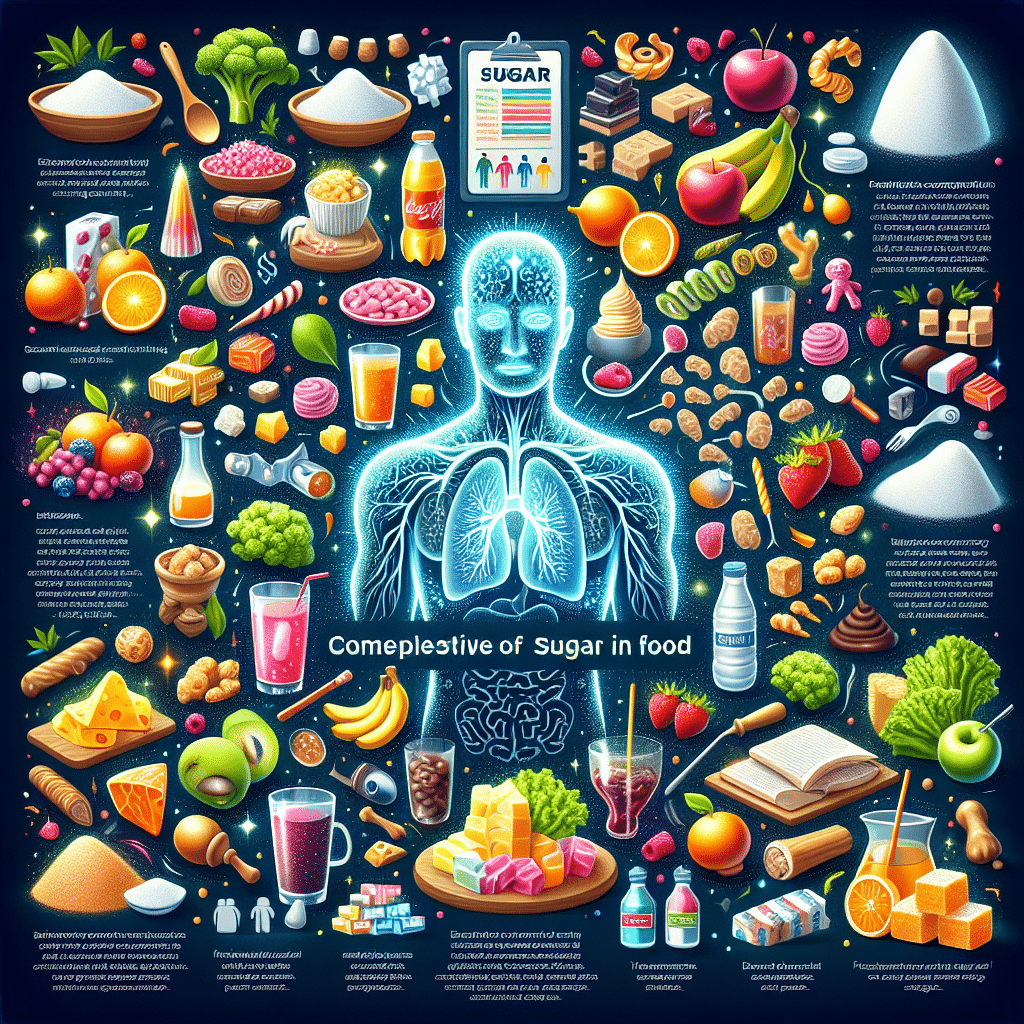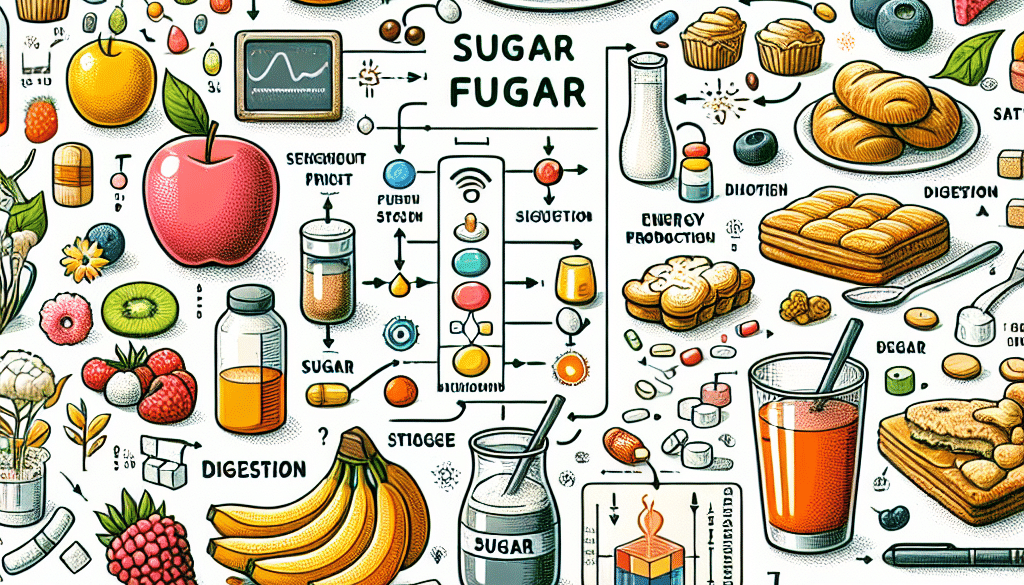Sugar in Food: Understanding Its Comprehensive Role
-
Table of Contents
- Sugar in Food: Understanding Its Comprehensive Role
- The Multifunctional Nature of Sugar
- Health Implications of Sugar Consumption
- The Sugar Industry and Food Marketing
- Case Studies and Statistics
- Reducing Sugar Intake: Alternatives and Strategies
- Conclusion: The Sweet Balance
- Discover ETChem’s Protein Products
Sugar in Food: Understanding Its Comprehensive Role

Sugar is a ubiquitous ingredient in the modern diet, found in everything from the morning cup of coffee to the ketchup on a dinner plate. Its role in food goes beyond just adding sweetness; it affects texture, color, fermentation, and preservation. This article delves into the multifaceted functions of sugar in our food, the health implications of its consumption, and how it shapes the food industry.
The Multifunctional Nature of Sugar
Sugar is not just a sweetener; it’s a versatile component that plays several roles in food production and preparation:
- Flavor Enhancer: Sugar enhances the flavor profile of foods, balancing acidity and bitterness, and bringing out the best in other ingredients.
- Preservative: In high concentrations, sugar acts as a preservative by inhibiting microbial growth, which is why it’s used in jams, jellies, and certain confections.
- Texture Modifier: Sugar contributes to the mouthfeel and texture of foods, influencing properties like crunchiness in cookies or creaminess in ice cream.
- Browning Agent: Through the Maillard reaction and caramelization, sugar is responsible for the appealing golden-brown color of baked goods and roasted foods.
- Fermentation Aid: Sugar is a key ingredient in the fermentation process, feeding yeast and bacteria to produce alcohol in beer and wine, as well as carbon dioxide in bread.
Health Implications of Sugar Consumption
While sugar has many roles in food, its impact on health is a growing concern. Excessive sugar intake is associated with various health issues:
- Obesity: High sugar consumption can lead to weight gain and obesity, as sugary foods are often high in calories and can contribute to overeating.
- Diabetes: A diet high in sugar can increase the risk of developing type 2 diabetes by contributing to insulin resistance.
- Heart Disease: Studies have linked high sugar intake to an increased risk of heart disease, due to its potential to raise blood pressure and inflammatory markers.
- Dental Health: Sugar is a primary cause of dental caries (cavities), as it provides food for bacteria that produce harmful acids in the mouth.
Given these health risks, many health organizations recommend limiting added sugar intake to less than 10% of total daily calories.
The Sugar Industry and Food Marketing
The sugar industry has a significant influence on food production and marketing. Food manufacturers often add sugar to products to make them more palatable and to encourage repeat purchases. This has led to an environment where many processed foods contain hidden sugars, even those not traditionally considered sweet, such as bread, sauces, and salad dressings.
Marketing strategies also play a role in sugar consumption. Foods high in sugar are often advertised with health claims or targeted towards children, creating a disconnect between perceived healthfulness and actual nutritional content.
Case Studies and Statistics
Several case studies highlight the impact of sugar on public health:
- The soda tax implemented in various cities around the world has shown a decrease in sugary drink consumption, suggesting that policy interventions can influence dietary choices.
- Research on the effects of reducing sugar content in sugary cereals found that children’s overall sugar consumption decreased without affecting cereal sales or consumer satisfaction.
Statistics further illustrate the pervasiveness of sugar in diets:
- According to the American Heart Association, the average American consumes about 77 grams of sugar per day, which is more than three times the recommended amount for women.
- The global sugar market was valued at $77.5 billion in 2022 and is expected to continue growing, indicating the ongoing demand for sugar in food production.
Reducing Sugar Intake: Alternatives and Strategies
There are several strategies for reducing sugar intake without sacrificing taste or enjoyment:
- Natural Sweeteners: Options like stevia, monk fruit, and allulose offer sweetness without the calories or blood sugar impact of traditional sugar.
- Flavor Enhancers: Spices such as cinnamon, nutmeg, and vanilla can add complexity and sweetness to dishes without added sugar.
- Whole Foods: Fruits and vegetables contain natural sugars that come with fiber, vitamins, and minerals, making them a healthier choice for satisfying a sweet tooth.
Consumers can also look for products with “no added sugar” labels or make their own versions of processed foods to control the amount and type of sweeteners used.
Conclusion: The Sweet Balance
Understanding the comprehensive role of sugar in food is crucial for making informed dietary choices. While sugar plays many important roles in food production, its excessive consumption poses significant health risks. By being aware of the hidden sugars in processed foods, considering healthier alternatives, and supporting policies that promote better food labeling and reduced sugar content, consumers can enjoy the benefits of sugar without compromising their health.
Discover ETChem’s Protein Products
For those looking to balance their diet and reduce sugar intake, ETChem offers a range of high-quality protein products. Protein can help manage cravings and maintain a healthy weight, making it a valuable addition to a balanced diet. ETChem’s protein offerings, including marine, fish, bovine, and chicken collagen, provide a variety of options to meet individual dietary needs and preferences. Whether you’re formulating new food products or seeking to enhance your nutrition, ETChem’s proteins are an excellent choice.
About ETChem:
ETChem, a reputable Chinese Collagen factory manufacturer and supplier, is renowned for producing, stocking, exporting, and delivering the highest quality collagens. They include marine collagen, fish collagen, bovine collagen, chicken collagen, type I collagen, type II collagen and type III collagen etc. Their offerings, characterized by a neutral taste, instant solubility attributes, cater to a diverse range of industries. They serve nutraceutical, pharmaceutical, cosmeceutical, veterinary, as well as food and beverage finished product distributors, traders, and manufacturers across Europe, USA, Canada, Australia, Thailand, Japan, Korea, Brazil, and Chile, among others.
ETChem specialization includes exporting and delivering tailor-made collagen powder and finished collagen nutritional supplements. Their extensive product range covers sectors like Food and Beverage, Sports Nutrition, Weight Management, Dietary Supplements, Health and Wellness Products, ensuring comprehensive solutions to meet all your protein needs.
As a trusted company by leading global food and beverage brands and Fortune 500 companies, ETChem reinforces China’s reputation in the global arena. For more information or to sample their products, please contact them and email karen(at)et-chem.com today.




